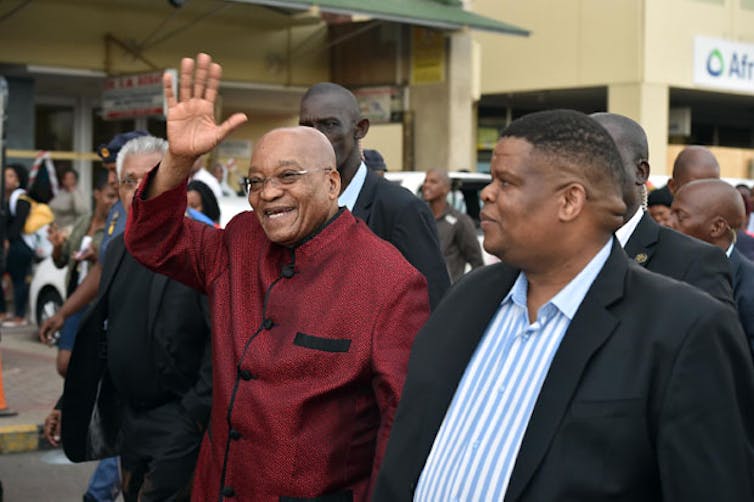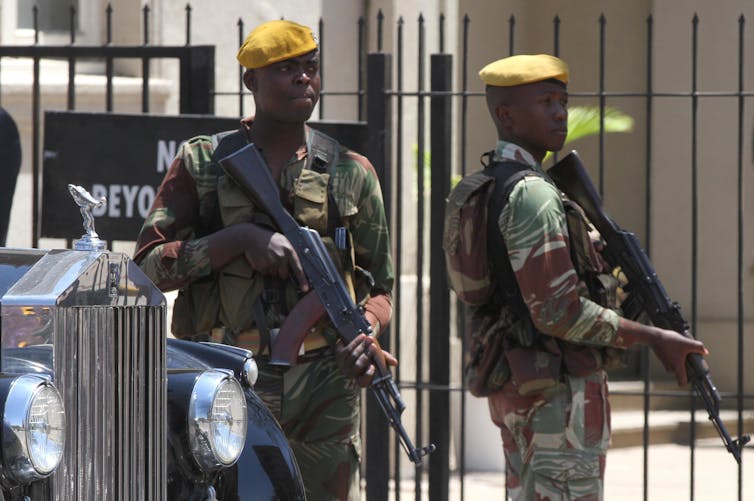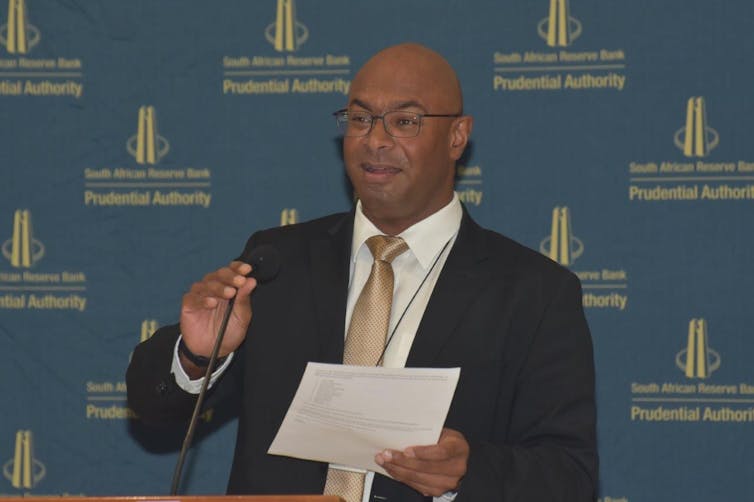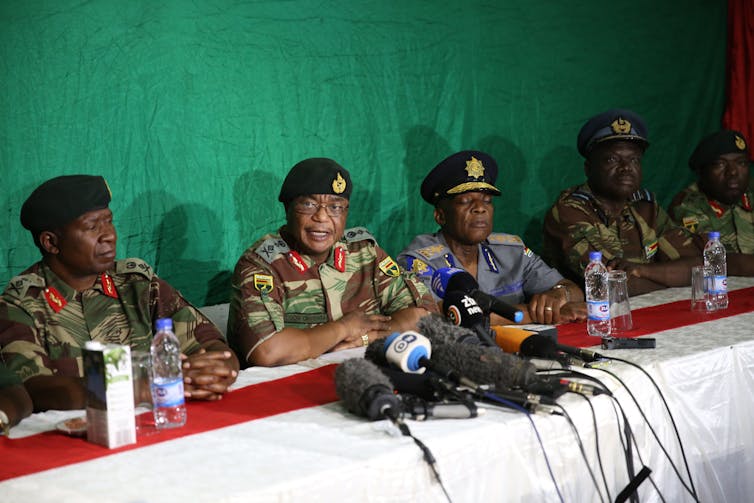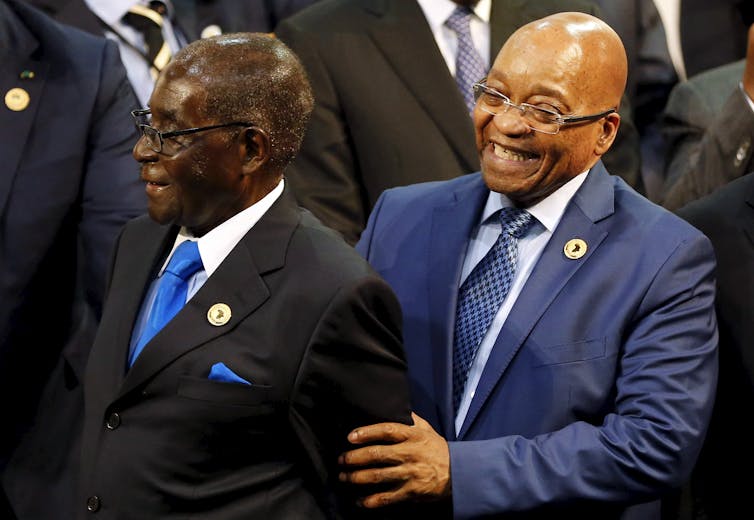
The political troubles of Zimbabwean President Robert Mugabe comes with lessons for his South African counterpart Jacob Zuma.
REUTERS/Siphiwe Sibeko
President Robert Mugabe’s endgame in Zimbabwe holds various lessons for his South African counterpart, Jacob Zuma, as the latter too, considers his prospects towards the end of his presidency. The first, obviously, is that while, from the pinnacle of power, a country’s president may feel the monarch of all he can survey, it is always possible that the blade of the guillotine is just around the corner.
Accordingly, it is always prudent to keep at least two bags packed for a hasty exit: one full of suit, shirts, underwear and socks, another full of foreign currency (preferably dollars or Euros). You just never know how things might pan out, so it is best to be prepared.
Following the almost-coup, Mugabe has been in a stronger position than many African dictators before him because the African Union has in recent years become a lover of democracy and a hater of coups. It therefore now demands that changes of leadership must have at least a veneer of constitutionality.
This has always been the Zimbabwean military’s weak point during this past week of flirting with political power. Hence its insistence that, despite its take-over of the airwaves, State House and parliament, alongside its house-arrest of the president and his family, its actions are not a coup.
In turn, this has provided Mugabe with a considerable degree of wriggle room, which he has sought to exploit to the full. Indeed, it has remained his key bargaining chip, not least because the African Union does not want to be seen as party to the overthrow of a hero of African liberation.
Explicit political actor
Zuma will feel confident that whereas in Zimbabwe the army has long been deeply involved in the ruling party’s internal affairs and the wider political arena, the South African National Defence Force is not an explicit political actor. He stands in no fear of a military coup (or even a Zimbabwe-style non-coup). Yet he does have to worry about what happens within his political party, the African National Congress (ANC).
Even if his favoured candidate, Nkosazana Dlamini-Zuma, were to win the party leadership at the ANC’s December congress, Zuma’s continuing as South African President might be seen as a political embarrassment. If strong contender Cyril Ramaphosa wins, even more urgent calls will be made from within the ANC for the him to be “recalled” because he will be viewed as an electoral liability.
It is a fair bet that, whoever wins, an excuse will be made for a delegation from the party leadership to visit the president and to ask him to stand down. Just ask former President Thabo Mbeki who was fired by his own ANC. If Zuma refuses to cooperate, then the ANC might turn to parliament, where enough ANC MPs might feel emboldened to vote with the opposition to dethrone him.
Fighting for survival
Like Mugabe, Zuma will be battling for a dignified exit. Even more urgently, he will be fighting for survival. In previous years, Mugabe may have feared the prospect of retribution for his sins, and would have been determined to secure immunity from prosecution.
Now, at 93, he is confident that once out of office he will be left in peace. He may or may not appreciate the irony that, unlike his country’s last white ruler Ian Smith, he will not be able to stay in Zimbabwe after he has been forced to stand down, but he will know that he has to leave.
Neither the army nor Zanu-PF will want him hanging around, fearing his ability to continue pulling strings. So off he must go, to South Africa, Dubai or Singapore (anywhere with a few decent shops for his shopaholic wife Grace). His major immediate concern then, we may presume, is safe passage and immunity for his family. We may further presume, that there is lots of money stashed away in foreign bank accounts to keep the crocodile from the door.
Zuma’s tricky position
Zuma is differently placed. If he loses the Presidency he stands in all sorts of dangers, not least of which is prosecution for past financial crimes and the prospect of his ending his days in prison. In other words, he has much more to bargain for, and he will be doing so from a considerably weaker position. Not least of his problems is that he is a lot younger than Mugabe, so could spend quite a few years in jail.
Zuma’s major strength is that, whoever wins the party leadership, the ANC will probably want to grant him immunity and get him out of the way, as otherwise they face the prospect of their former leader facing a corruption trial during the lead up to elections in 2019.
But for a start, there is no provision for presidential immunity in the constitution, and its grant would face a strong challenge in the courts. Furthermore, if the Gupta or other Zuma allies in the project of “state capture” were to be prosecuted, Zuma could face being dragged into court as a witness.
In short, Zuma will realise that it will make sense to hot-foot it out of the country, preferably to a comfortably authoritarian country which will turn down requests for extradition.
The fickle people
What Mugabe is learning now, and it is something of which Zuma should take good note, is that the people are an ungrateful lot, and are likely to turn against you just when you most need their support. Up till a week ago, it was presumed that Mugabe retained the backing of all who mattered in Zanu-PF and that he would again be its candidate for president at the next election. But now, like many a dictator, he is having to learn fast that the people no longer love him.
Past allies, like the war veterans, had already turned against him, repudiating his apparent bid for his wayward wife, Grace, to replace him. Zanu-PF Youth leader, Kudzai Chipanga, initially declared his willingness to “die for Mugabe” and labelled Major-General Constantino Chiwenga, the leader of the non-coup, a traitor when the army first intervened. After being locked up, he shamefacedly read out an abject apology, begging forgiveness, and pleading the inexperience of youth.
This has been followed by all 10 provincial organisations of Zanu-PF calling for Mugabe to go, and even encouraging ordinary people to join the marches being organised by opposition parties and civil society demanding his dismissal.
Zuma is too wily a politician not to know that once he loses the party presidency, his support base will drain away, and that he will become known as yesterday’s man. Yet like Mugabe, he will take comfort from the regional body, the Southern African Development Community (SADC), for there is nothing his fellow presidents dread more than the prospect of any one of their number facing impeachment.
He will also know that, unlike Mbeki, whose stature in Africa remains high, he has no viable future as a roving ex-president. Zuma will know that if he wants to enjoy his retirement in peace, he has to leave South Africa before he gets tangled up in court proceedings.
Roger Southall, Professor of Sociology, University of the Witwatersrand
This article was originally published on The Conversation.
